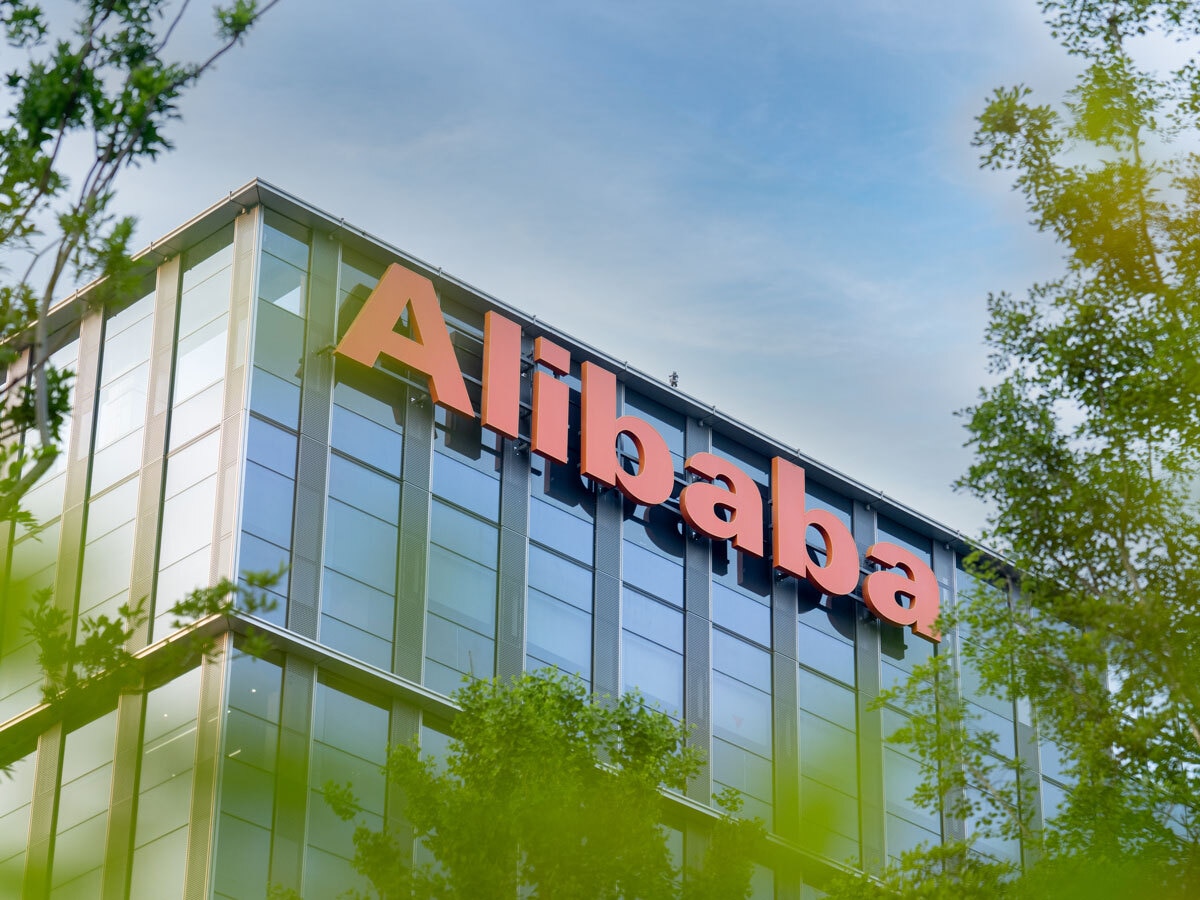Alibaba’s share price fell 6% following an earnings miss in a mixed week for Chinese technology stocks. Baidu, Tencent and JD.com all achieved earnings beats, and the sector looks to be on the rise, as 13-F filings reveal two major investors have made substantial increases to their holdings of the stocks.
- Alibaba’s share price falls 6% on earnings miss and net income collapse.
- Tencent’s profits increase 62%, their fastest rate for three years.
- iShares MSCI China Tech UCITS ETF up 13.5% year-to-date.
Alibaba’s Net Income Collapse
Alibaba [BABA] stock fell 6% on 14 May following the announcement of its Q4 2024 earnings report.
Revenue increased 7% year-over-year to ¥221.9bn (approximately $30.7bn), exceeding by 1% the average expectations of analysts polled by LSEG.
Non-GAAP diluted earnings per share (EPS), however, fell 5% year-over-year to ¥10.14. This fell slightly short of analysts’ expectations of ¥10.22.
More worryingly, net income collapsed from ¥22bn in the equivalent period the previous year, to just ¥919m — a fall of 96%. In its earnings release, Alibaba attributed the decline to “a net loss from our investments in publicly traded companies during the quarter”.
However, Eddie Wu, CEO of Alibaba, maintained that “this quarter’s results demonstrate that our strategies are working and we are returning to growth.
“We are also excited by the accelerated growth of customers and cloud computing revenues related to our artificial intelligence (AI) products,” he added.
Taobao and Tmall Group, the division that includes Alibaba’s Chinese e-commerce platform, registered revenue growth of 4% year-over-year, to ¥93.2bn. Alibaba’s cloud intelligence group increased revenue 3% to ¥25.6bn.
Tencent in the Money
Alibaba’s earnings release coincided with competitor Tencent’s [0700:HK] for Q1 2024. The latter’s shareholders had more to celebrate.
Revenue increased 6% year-over-year to ¥159.5bn, slightly beating analyst estimates of ¥158.4, while profit attributable to equity holders increased 62% to ¥41.9bn. This profit figure exceeded analysts’ estimates of ¥36.6bn. According to LSEG data, Tencent’s profits increased at their fastest rate for three years.
Tencent’s American depository receipts ended the day up 4.67% on the previous day’s close, underscoring the difference between its quarter and Alibaba’s.
Despite a return to growth in gross receipts for Tencent’s domestic games division, the segment did register a 2% fall in revenue to ¥34.5bn, which Tencent attributed to revenue deferral.
However, several other key business units posted strong growth. Fintech and business services, for example — which includes its cloud computing arm as well as its payments platform, WeChat Pay — grew by 7% to ¥52.3bn.
The results were sufficient for Chairman and CEO Ma Huateng to announce an acceleration of Tencent’s share buyback program and increase its dividend.
“Executing on our commitment to return excess capital to shareholders, we stepped up our buyback plan, and are on track to repurchase over HK$100bn of our shares in 2024, as well as paying an increased dividend,” said Ma. He added that the company is initiating these capital returns alongside investments into AI technology and other platform and content initiatives.
Burry Bets Big on BABA Stock
Alibaba and Tencent’s earnings releases preceded those of Baidu [BIDU] and JD.com [JD] on 16 May.
While Baidu announced Q1 2024 revenue of ¥31.5bn, up just 1% year-over-year and down 10% on the previous quarter, it did beat analysts’ expectations of ¥31.2bn. EPS rose 24% year-over year to ¥19.91, above analysts’ expectations of ¥15.79, though this again marked a 9% decline on the previous quarter.
JD.com’s revenue rose 7% year-over-year to ¥260bn, ahead of analysts’ expectations of ¥257.7bn. EPS rose 18.7% year-over-year to ¥5.65, beating analysts’ expectations of ¥4.59.
Baidu’s share price waivered in pre-market trading, gaining nearly 5% before markets opened. JD.com was on the rise, and was set to open as much as 5.6% higher than its previous close on 16 May.
Asian tech stocks more broadly could be buoyed by high-profile investor interest. Michael Burry’s Scion Asset Management bought 160,000 JD.com shares and 50,000 Alibaba shares during Q1, its 13-F filing released 15 May revealed. These represented an 80% and a 66.7% increase, respectively, in Scion’s stake in each stock, making them Scion’s largest and second-largest holdings.
Similarly, David Tepper’s Appaloosa Management increased its stake in Alibaba and Baidu by 158.6% and 188% respectively, while taking out a new position in JD.com worth $99.9m. This put Alibaba to the top of Appaloosa’s holdings as of 31 March, the last day of Q1.
How to Invest in China Tech
In the year to 16 May, Alibaba’s share price has gained 4.5%, while Tencent’s is up 35.2%. JD.com’s is up 19.7%, but Baidu’s stock has struggled and is down 7% over the same period.
Over the past 12 months, Alibaba’s stock has fallen 7.5%, Tencent’s has gained 16%, JD.com’s is down 8.8% and Baidu’s has fallen 16.5%.
The discrepancy between year-to-date and 12-month performance highlights the positive start that Chinese e-commerce stocks made to the year, and suggests they may have been buoyed by the investments of institutional investors such as Burry and Tepper.
The contrasting fortunes of Alibaba and Tencent following their earnings highlights the fact that the Chinese technology sector can be difficult to predict. Investing in a thematic ETF can give investors exposure to a particular theme while diversifying risk away from any given stock.
As of 15 May, the Hong Kong-listed shares all four companies are in the top ten holdings of the iShares MSCI China Tech UCITS ETF [MCHI]. Tencent, Alibaba [9988:HK] and Baidu [9888:HK] comprise the top three holdings, with weightings of 8.6%, 7.4% and 6.8% respectively, while JD.com [9618:HK] is seventh, with 5.4%.
MCHI has gained 13.5% year-to-date and 0.5% over the past 12 months
Disclaimer Past performance is not a reliable indicator of future results.
CMC Markets is an execution-only service provider. The material (whether or not it states any opinions) is for general information purposes only, and does not take into account your personal circumstances or objectives. Nothing in this material is (or should be considered to be) financial, investment or other advice on which reliance should be placed. No opinion given in the material constitutes a recommendation by CMC Markets or the author that any particular investment, security, transaction or investment strategy is suitable for any specific person.
The material has not been prepared in accordance with legal requirements designed to promote the independence of investment research. Although we are not specifically prevented from dealing before providing this material, we do not seek to take advantage of the material prior to its dissemination.
CMC Markets does not endorse or offer opinion on the trading strategies used by the author. Their trading strategies do not guarantee any return and CMC Markets shall not be held responsible for any loss that you may incur, either directly or indirectly, arising from any investment based on any information contained herein.
*Tax treatment depends on individual circumstances and can change or may differ in a jurisdiction other than the UK.
Continue reading for FREE
- Includes free newsletter updates, unsubscribe anytime. Privacy policy






